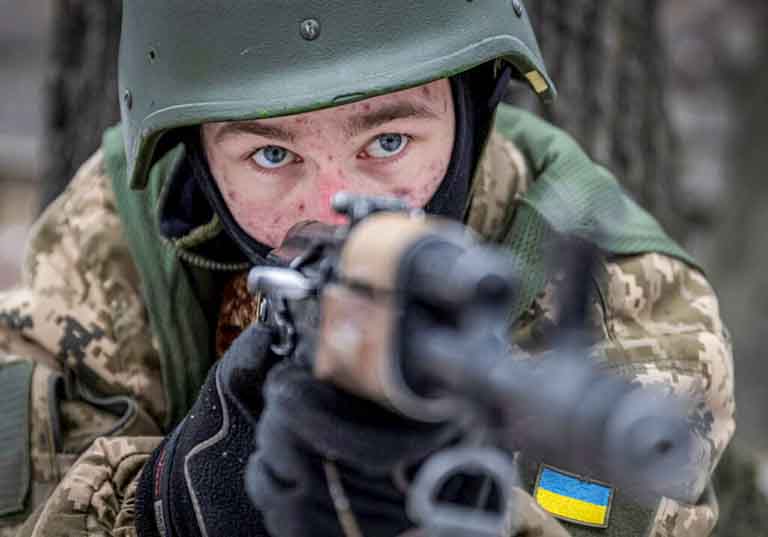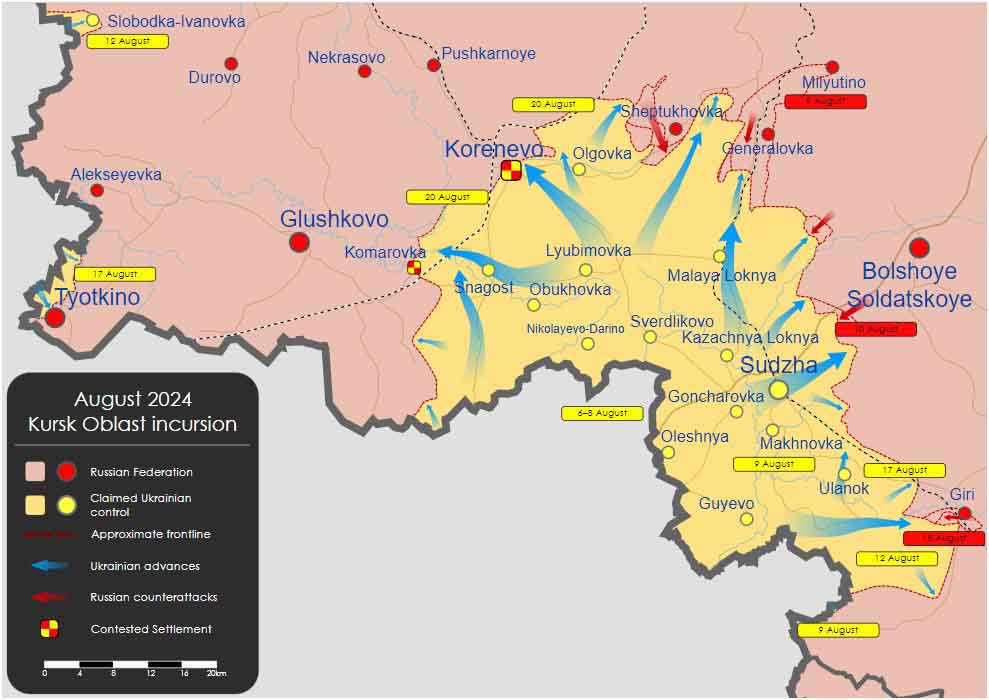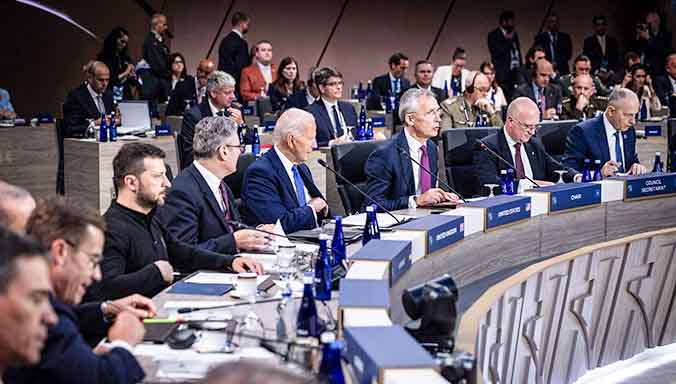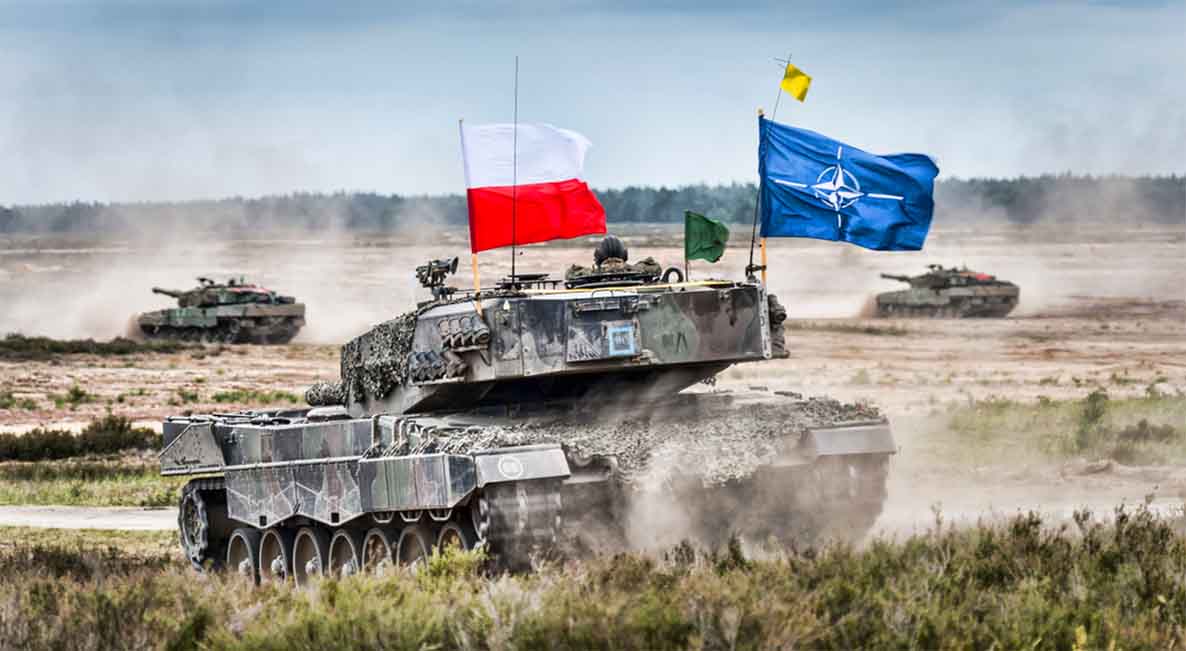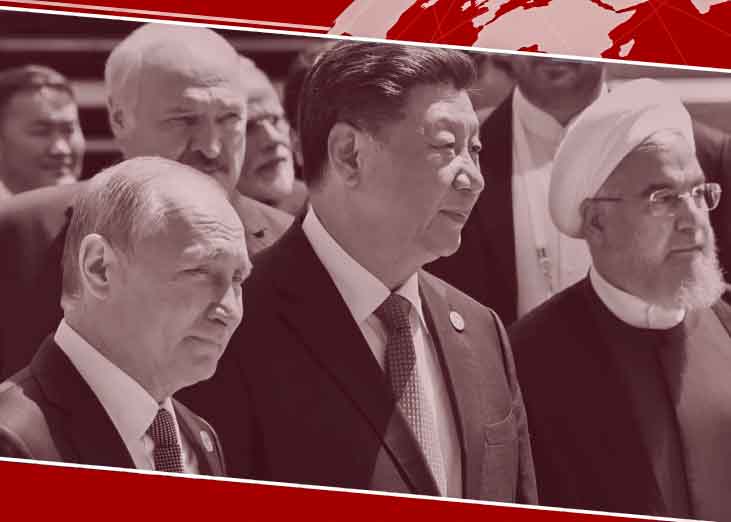This is the second part of an article on the joint report of the Committee on Foreign Affairs, the Committee on Armed Services, and the House of Representatives Permanent Select Committee on Intelligence, prepared late last year.
Plan for Victory in Ukraine - Part I
Let us recall that the main goal of the presented report was to answer critical questions regarding the attitude of the United States and its allies towards the war in Ukraine. Importantly, it was the first official Western forum where the victory plan was presented. The authors of this key document are the Republican chairmen of defense-related committees in the US Congress, namely Representatives Michael McCaul (R-TX), Mike Rogers (R-AL) and Mike Turner (R-OH).

Cover of the US Congress report. (Source: US Congress)
Corruption
Opponents of aid to Ukraine — and there are many in the United States, especially in former President Trump's circles — raise the issue of corruption as one of the main reasons why the United States should not send weapons, equipment or financial aid to the government in Kiev.
The allegedly pervasive corruption, which President Zelenskiy's team seems unable to cope with, means that one of the main topics in this year's presidential campaign in the US is the theft of American aid by Ukrainian elites. As Alexey Arestovich, a former adviser to the Chancellery of the President of Ukraine, says, the problem is that American taxpayers' money is being stolen: "The US gives us money and we steal it." [3]
Examples of corruption in Ukraine actually come to light, seemingly every now and then. More recently, for example, in December last year, the Security Service of Ukraine (SBU) detained the head of one of the main departments of the Ministry of Defense of Ukraine, who is suspected of stealing 1.5 billion hryvnias (PLN 157 million; USD 39 million) intended for the purchase artillery shells for the Armed Forces of Ukraine. [2]
Ukrainian media report on corruption cases almost every day, especially in the Ministry of Defense. For example, in the first quarter of 2023, no one apparently bothered to investigate the possible risks associated with cooperation with companies supplying food to the army. [3]
Oleksy Reznikov — Minister of Defense of a country actively at war! — was removed from office for corruption last August — anecdotally, over overpriced eggs and shoddy jackets. These are symbols of the two most famous, although not the only, corruption scandals in the Ministry of Defense under his rule. In some contracts, the Ministry paid absurdly increased prices for food for soldiers at the front. Among other things, eggs bought in bulk cost several times more than those available in stores in Kiev. [4] And military jackets bought in Turkey for $29, after crossing the border into Ukraine, suddenly became valued at... $86. [3]
A survey by the Kyiv International Institute of Sociology conducted on September 4-20, 2023 shows that 58% of Ukrainians consider the fight against corruption to be the number one priority among all reforms and tasks facing Ukraine, and only 29%, twice as many, chose the option "war-related tasks." [3] Therefore, for Ukrainians themselves, the fight against corruption is the most critical problem.
Against this background, the headline of the tripartite report of the US Congress sounds a bit strange:
As of November 2023, the Inspectors General of the DoD, State, and USAID have not identified any significant diversion, theft, or misuse of US assistance to Ukraine. [1]
Supervision
The report by congressional Republicans provides examples of numerous initiatives aimed at clarifying and controlling how U.S. aid is used.
- Hearings of Department of State, Department of Defense, and other inspectors before congressional committees.
- 96 audits, 36 of which have already been completed, to monitor and evaluate activities related to assistance to Ukraine.
- The Ukraine Oversight Working Group has been established to implement the common strategic oversight plan and ensure that there are no duplications or gaps in supervision.
The report notes that the U.S. Department of Defense has unprecedented visibility into the status of many types of high-end military equipment transferred to Ukraine, including the ability to track the serial numbers of HIMARS, howitzers, Abrams tanks, and Bradley and Stryker vehicles, which provides up-to-date information on their location and situation.
USAID (US Agency for International Development, an independent government agency that receives only general guidance from the Secretary of State in the sphere of foreign policy) has an investigative department and agents in Kiev who work closely with the Department of Justice to conduct investigation and potential prosecution of all allegations of crimes committed against USAID programs and operations in Ukraine. [1]
As required by law, all US DBS [Direct Budget Support] to Ukraine is done on a reimbursable basis, meaning funds are only disbursed following the World Bank's verification the money was spent on approved activities. All funds also are subject to external third-party monitoring by Deloitte.
Legislative Initiatives
The report provides examples of several Congressional bills that would be aimed at curbing or preventing mismanagement of aid funds (not all of these bills have yet been officially passed):
- H.R. 4665, the “Department of State, Foreign Operations, and Related Programs Act for Fiscal Year 2024,” included unprecedented surveillance provisions specific to Ukraine.
- H.R. 2670, the "National Defense Act for Fiscal Year 2024," proposes flexible hiring options for oversight agencies for matters related to the oversight of U.S. financial assistance to Ukraine. It also introduces the position of Special Inspector General for Aid to Ukraine, and at the same time focuses on transparency, requiring numerous reports and briefings for Congress.
- H.R. 5692, the “Ukraine Security Assistance and Oversight Supplemental Appropriations Act in 2024,” provides funding for a special inspector general for Ukraine.
- H.R. 4365, the “Department of Defense Fiscal Year 2024 Act,” provides the Inspector General's oversight of the Department of Defense's implementation of the presidential disbursement order.
The awakening of Europe
The report by the three congressmen also describes the disproportion of American aid compared to other Western countries, primarily European ones.
It turns out that to date, international donors have provided $109.4 billion in security, economic and humanitarian assistance to Ukraine, on top of the U.S. commitment to Ukraine of $74.3 billion.
However, what is interesting is not the absolute numbers themselves, but the proportion of a given country's aid to its GDP. As a percentage of GDP, as many as 29 European countries provided more aid to Ukraine than the US. Poland is in seventh place on this list, having provided direct aid worth 1.27% of GDP — of course, not counting the significant contribution of Poles in accepting millions of refugees from Ukraine.
It is not particularly surprising that the countries that have so far provided nominal aid greater than Poland are Lithuania (1.82% of GDP), Estonia (1.78% of GDP), Norway (1.71% of GDP), Denmark (1.66% of GDP), Latvia (1.6% of GDP ) and Slovakia (1.37% of GDP), mainly the Baltic and Scandinavian countries — those most exposed to, or most afraid of, possible Russian aggression in the future. There's nothing like looking danger straight in the eye.
The United States, 30th on this list, has spent 0.33% of its GDP on aid to Ukraine so far.
The report draws attention to the fact that many European countries "woke up" and became convinced of the need to take the continent's defense more seriously. As a result, U.S. NATO allies purchased $90 billion worth of U.S. weapons to replace their contributions to Ukraine.
Of NATO's 31 members, 11 allies meet the 2% of GDP defense spending target agreed in 2014. On this list, Poland leads the way, spending 3.9% of GDP, followed by the USA (3.49% of GDP), Greece (3.01% of GDP), Estonia (2.73% of GDP) and Lithuania (2.54 % of GDP). Ten more allies, including Albania, Bulgaria, Croatia, the Netherlands, the Czech Republic and even Germany, plan to achieve this goal in the next two years.
In the meantime:
- Great Britain, Poland and the Baltic countries were the first to deliver Western tanks to Ukraine: Challenger and Leopard.
- Britain and France were the first to deliver long-range missiles (Storm Shadow and SCALP missiles).
- The Netherlands and Denmark have initiated the training of F-16 pilots and the project of transferring these aircraft to Ukraine.
- The United States also agreed to train F-16 pilots under pressure from European allies and Congress.
It was Vladimir Putin who woke up NATO, but — as the authors of the report emphasize — NATO is now spending money on American weapons, thereby fueling the American economy.
Not only Europe
NATO is not the only one closely monitoring developments in Ukraine. Let's give the floor to the authors of the US Congress report:
Understanding the outcome of the war in Ukraine will have consequences for peace and stability in the Indo-Pacific, many of our Asian partners have assisted Kyiv. The Republic of Korea, Taiwan, and Japan all joined the U.S. in sanctions against Russia. All three also contribute humanitarian assistance, recovery assistance, and nonlethal equipment to Ukraine.
Let's look at what, according to the Congress report, the countries of the Pacific basin are doing for Ukraine:
- Japan: Until April 2023, Japan's contribution to Ukraine is USD 7.1 billion. Japanese Prime Minister Fumio Kishida clearly saw the similarities between Putin's war and the threat of unilateral efforts to change the status quo in the Indo-Pacific region.
- Republic of Korea: The Republic of Korea has so far transferred $250 million to Ukraine and pledged an additional $2.3 billion in humanitarian, financial and reconstruction assistance. The ROK government also donated artillery ammunition to replenish supplies.
- Taiwan: Political support for Ukraine remains high in Taiwan, in large part due to the threat of CCP invasion. The country transferred almost $112 million to Ukraine.
Humanitarian Relief
We have written many times about the incredibly warm reception of a huge number of Ukrainian refugees by Poles. The Congress report does not emphasize the role of Poland as the first destination for war refugees, but talks about the European Union as a whole:
Close to 8 million refugees have been recorded in the EU, and more than 4 million Ukrainians have registered for temporary protection in the EU, which means they are entitled to work, accommodation, healthcare, as well as schooling for their children at the EU’s expense. Today, close to 20 percent of Ukraine’s children are taking refuge in the EU. By comparison, the U.S. has taken in around 250,000 Ukrainian refugees.
Conclusions
The war in Ukraine caused by the Russian aggressor has not only a human dimension — tens and hundreds of thousands of innocent people are dying — but an economic one. War is a very expensive undertaking.
The authors of the US Congress report argue that US aid to Ukraine is not only a good moral move, but also good business — for two reasons:
- Demand for American weapons and ammunition is increasing.
- The position of the United States as the leader of the free world opposing the aggression of autocrats is being consolidated.
In the report, Republican members of the House of Representatives demand from President Biden a comprehensive victory plan, applying the highest degree of pressure by introducing and enforcing economic sanctions, transferring frozen Russian sovereign assets to Ukraine, and providing Ukraine with the necessary weapons to achieve victory as quickly as possible.









